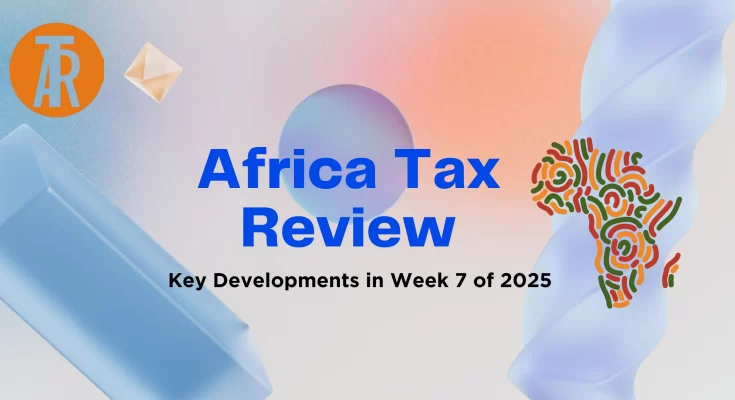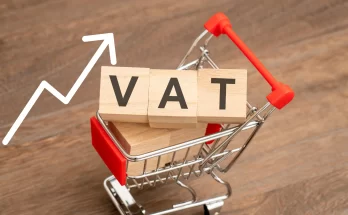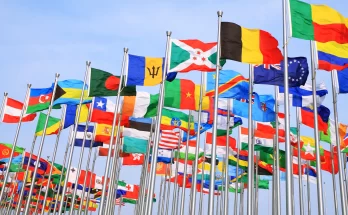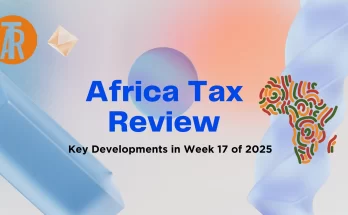The second week of February 2025 brought forward a fresh wave of fiscal challenges and strategic recommendations in Africa’s taxation landscape.
From South Africa’s unprecedented budget delay to Morocco’s tax base reform proposal under IMF guidance, the week’s events reflect the tension between political consensus and economic necessity in shaping national tax agendas.

1. South Africa: Political Rift Halts 2025 Budget Over VAT Proposal
For the first time in over three decades, South Africa’s Parliament failed to deliver its national budget on schedule, with the event, originally slated for February 14, 2025, postponed due to sharp divisions within the ruling coalition.
The African National Congress (ANC) had proposed a 2% increase in the Value-Added Tax (VAT) rate, aiming to bolster public revenue amid a slowing economic recovery.
However, the Democratic Alliance (DA), a key coalition partner, strongly resisted the measure, citing its regressive impact on lower-income households and potential to fuel inflation (Associated Press, 2025).
Although the National Treasury had announced a phased VAT increase to 15.5% by May 1, 2025, and 16% by April 2026 during prior deliberations (South Africa National Treasury, 2025), the political standoff has created fiscal uncertainty.
Businesses and taxpayers remain in limbo regarding the final structure and timing of tax adjustments, especially in sectors reliant on consumer spending.

2. Morocco: IMF Pushes for Expansion of the Tax Base and Fiscal Discipline
In a separate but equally important development, the International Monetary Fund (IMF) issued a post-consultation report urging Morocco to expand its tax base, cut subsidies to state-owned enterprises, and enhance fiscal transparency.
The IMF’s mission, which concluded its Article IV consultation with Morocco on February 10, 2025, emphasized the need to implement tax policy reforms that would reduce Morocco’s debt-to-GDP ratio while making room for growth-enhancing expenditures (Reuters, 2025).
The IMF further encouraged Morocco to adopt an inflation-targeting monetary policy framework after inflation stabilized near 2%, signaling that broader macroeconomic reforms are achievable if fiscal anchors are strengthened through improved tax compliance and elimination of exemptions (IMF Article IV, Morocco, 2025).
Morocco’s current challenges include a relatively narrow tax base, with large informal sector participation and significant VAT non-compliance.
The IMF has recommended reforms that focus on enhancing tax administration, simplifying the tax code, and reviewing corporate income tax relief schemes that disproportionately benefit large firms.
Conclusion: A Tale of Two Priorities
Week 7 of 2025 exposed contrasting challenges in Africa’s two key economies—South Africa struggling with political feasibility of tax increases, and Morocco under external pressure to enhance tax policy efficiency and fiscal discipline.
While South Africa’s case demonstrates how internal political dynamics can stall essential tax decisions, Morocco’s proactive approach under IMF surveillance highlights the increasing role of global institutions in guiding domestic tax reforms across the continent.
The broader message for African tax policymakers is clear: sustainable development goals will remain elusive without broad-based, equitable, and administratively sound tax systems.
As governments face rising public expenditures amid fragile recoveries, the coming weeks will test their resolve in turning policy proposals into executable tax frameworks.
As always, Africa Tax Review remains committed to delivering timely, evidence-based updates that empower professionals across the continent. Visit www.africataxreview.com weekly for your authoritative digest on what’s changing in tax policy across Africa.
Olatunji Abdulrazaq CNA, ACTI, ACIArb(UK)
Founder/CEO, Taxmobile.Online




